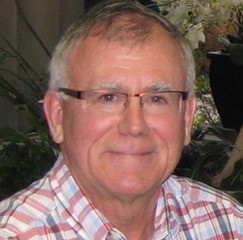
Recent talk about WEXIT and the resurgence of Alberta’s feelings of alienation, after the 2019 federal election, is no more surprising than the number of pop-up pundits appearing on 24-hour hour news channels pontificating about its cause and effect. Although democracy may not seem fair, especially if you perceive yourself to have been on the losing end of an election, that is how it works. The fact that people may feel they are without representation after an election, if their preferred candidate loses, is not unusual. Many Albertans who supported the Liberals or NDP probably feel they have no one representing them either. People only get to choose their local representative in parliament, not the governing party. Clearly, Albertans are represented in parliament and they have representatives of their choosing, just like everyone else. People seem to forget that choosing governments by majority vote must inevitably spoil someone’s day.
Does the fact that the Liberals were wiped out in Alberta make a big difference? The simple answer is, probably not. While speculating about the growth of alienation and the specter of western separatism may attract attention, it ignores reality. Some appear to have forgotten that the 1993 election saw Conservative MPs wiped out in many provinces, including Alberta. In fact, after that election the Conservatives held only two seats across the country, one in Quebec and one in New Brunswick.
The Reform Party, which did represent the “conservative” brand in Alberta, were no longer even the official opposition in parliament. So, what happened to Alberta after the 1993 election, that saw Conservative MPs wiped off the map in Alberta? According to a Fraser Institute publication that looked at the performance of provincial economies over a twenty-year period starting in 1981, Alberta did fine under a Liberal government. The Fraser Institute study based on the 2001 provincial rankings for real per-capita GDP found that, “Alberta (had) the highest level of per-capita GDP at $40,112. Alberta and Ontario significantly out-perform the remaining Canadian provinces.” The same report notes that employment growth in Alberta was unspectacular from 1981-1991, largely the Mulroney years, ranking 5th overall and moving up to first overall from 1991-2001 during the Chretien years. What may seem remarkable to some is that Alberta thrived even though the Conservatives were decimated in the 1993 election. It seems odd that some are equally unhappy now that they have only Conservative MPs in Alberta.
Alberta’s current economic struggles, characterized by high unemployment, burgeoning provincial deficits, and program cuts cannot be laid at Justin Trudeau’s feet. Some may recall that the good times in Alberta stopped rolling more than a decade ago. Alberta has posted only one budgetary surplus since 2009, long before the Liberals were elected to govern in 2016. The global economic slow-down after the financial crisis of 2008, along with low oil prices had already affected Alberta’s economy. Although the economy had recovered somewhat, Mr. Harper’s Conservative government majorities could not stem the mounting red ink in Alberta or manage to get more pipelines built. The precipitous drop in oil prices in 2014, which has caused significant hardship in Alberta, occurred two years before the era of “sunny ways”.
Albertans and like-minded pundits preaching doom and alienation need to take a breath. Many provinces have faced the same economic and budgetary problems as Alberta and, although it may be new for Alberta politicians to have to cut spending and reduce expectations, it is part of governing in most jurisdictions.
If Albertans want to feel better about the election, maybe they should be more optimistic about what politicians do. Most elected officials get over the hyper-partisanship of elections and do what they can for people, without regard to how those constituents personally voted. Federal politicians, whether Liberal, Conservative or NDP can, and most of the time do, think about the needs across the country without being hopelessly blinded by political affiliation or parochial interests. Canadians have more than 150 years of progress, sometimes uneven, as testimony to that fact.
Finally, there is always someone out there who feels betrayed or ignored, or worse, dismissed. Most elected officials are prepared to at least listen to someone who disagrees with them. They may still hold opposing views on the cause or remedies for a particular problem, but they also hold differing views from elected representatives of other ridings and other provinces, even within their own party. Voters have to trust that their politicians are sincere, even when they disagree with them ideologically or personally.
Most importantly, voters need to appreciate that the act of consulting, even when it happens in substantial ways, does not necessarily lead to agreement with those consulted. Agreeing to consult does not mean acquiescence. Sometimes people asking for consultation, or demanding more consultation, have been heard and their views have simply been found wanting. Politicians, no matter their stripe, cannot satisfy everyone.
Every once in a while, the people we elect need to do the remarkable thing. They need to chart a new course without consulting polls or trying to discern what people want, but rather by determining what needs to be done. Paying attention to what politicians do after elections is our most important job as citizens. After four years, we get to evaluate the job our representatives have done, on balance, to find the right solutions, and then vote accordingly.
Politics will only ruin everything, if we let it.
Jerry Storie was the NDP MLA for Flin Flon from 1981 to 1994, and held several provincial cabinet positions, including northern affairs, education and energy and mines. He served as a school superintendent from 1994 to 2004. Until he retired in 2010, he was an associate professor and dean of education at Brandon University.

